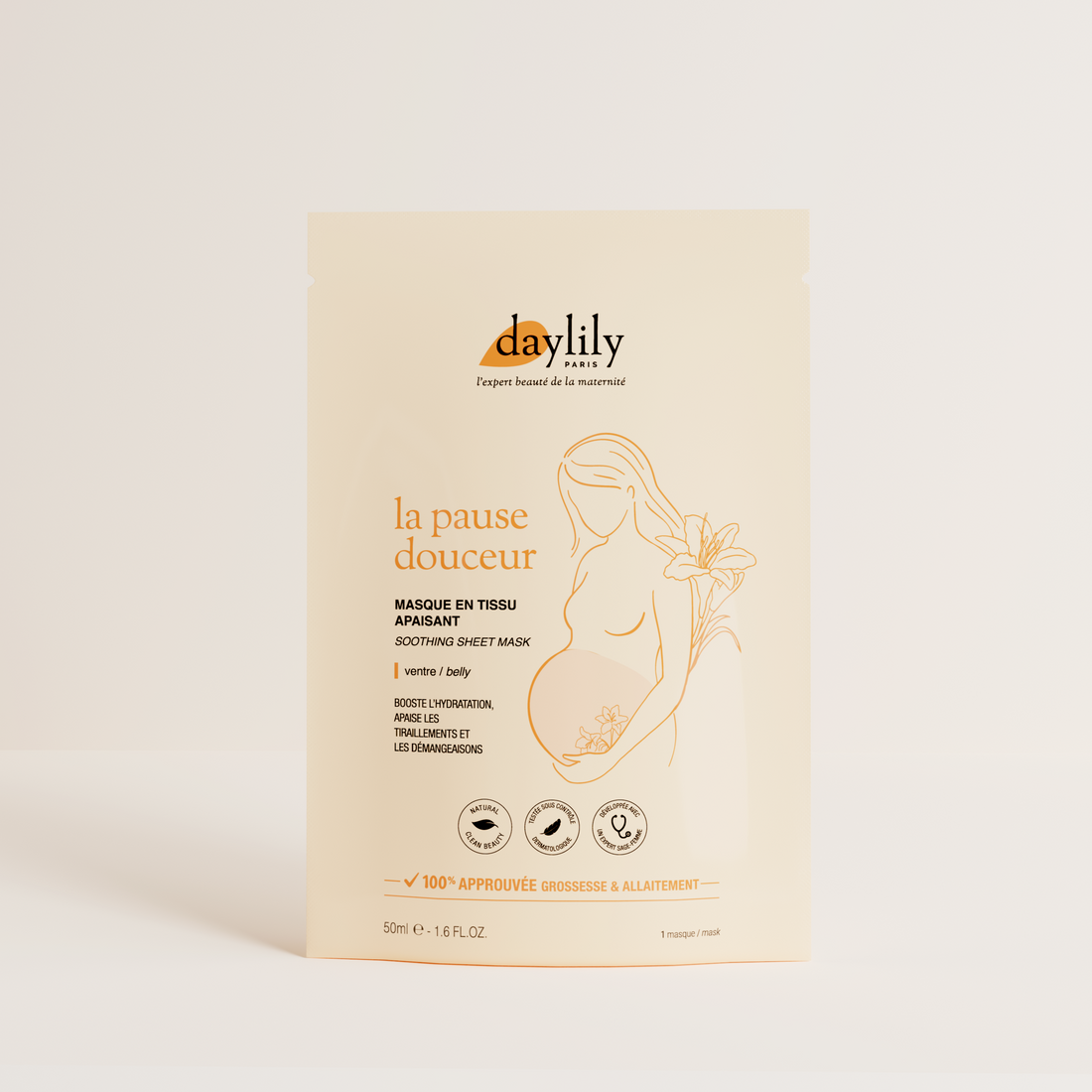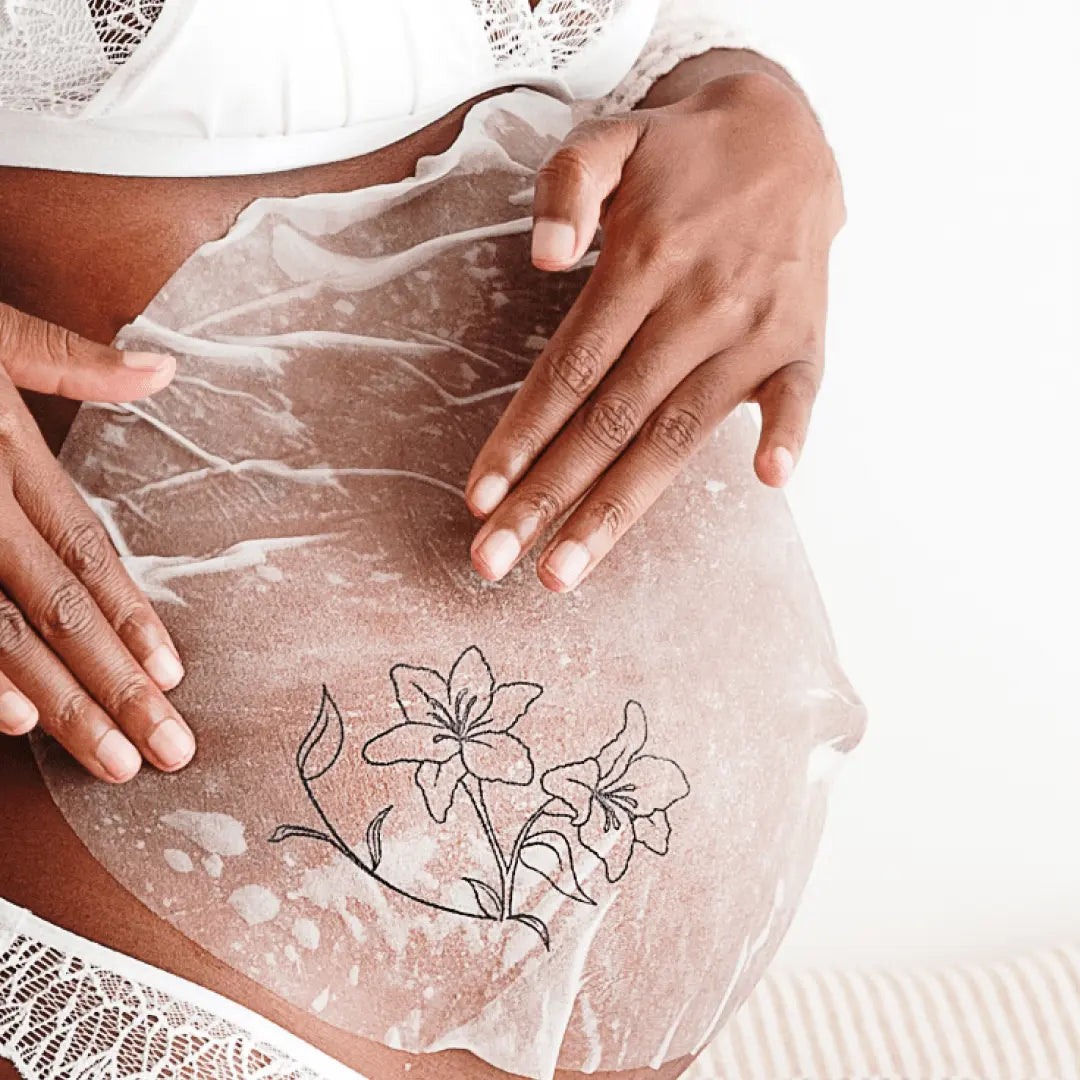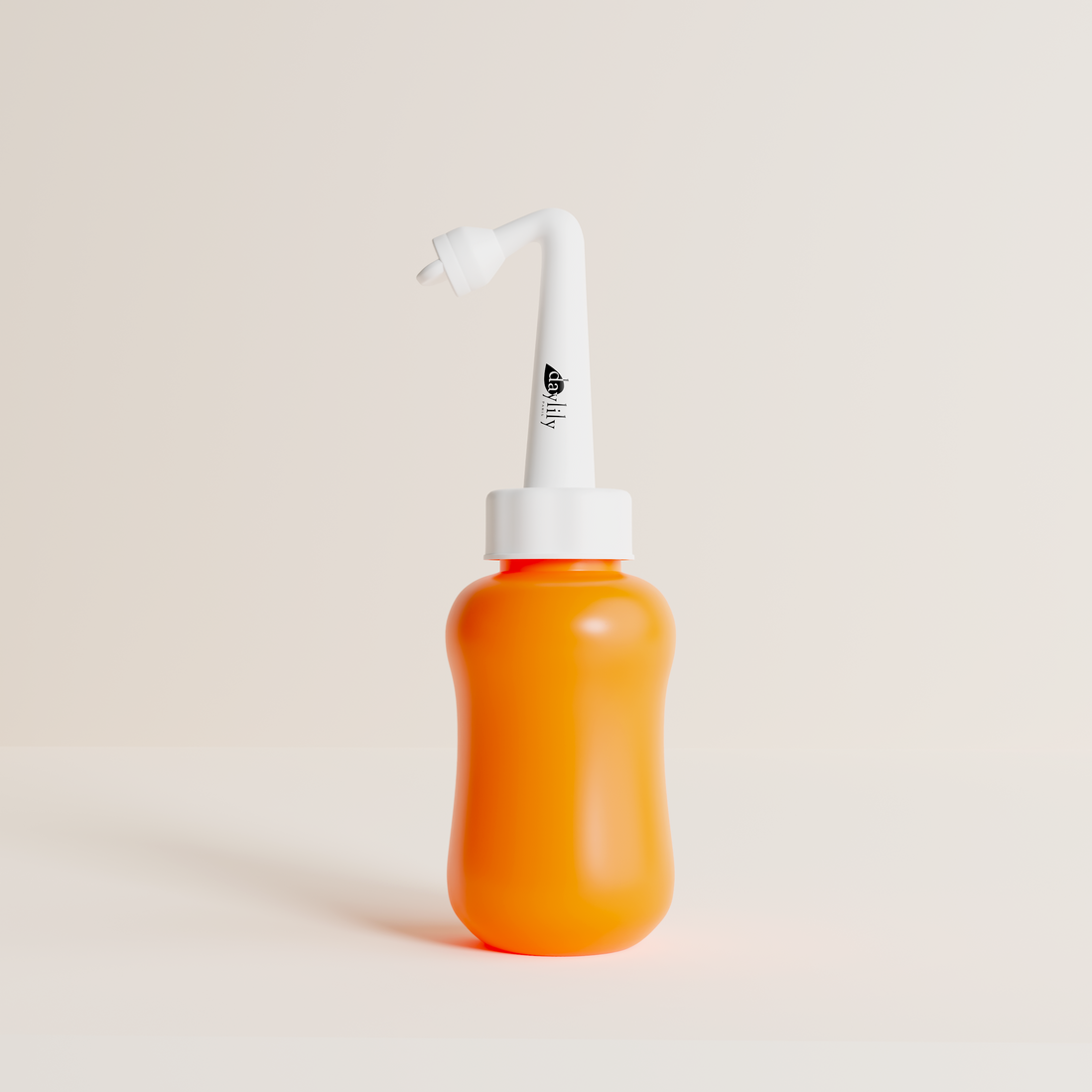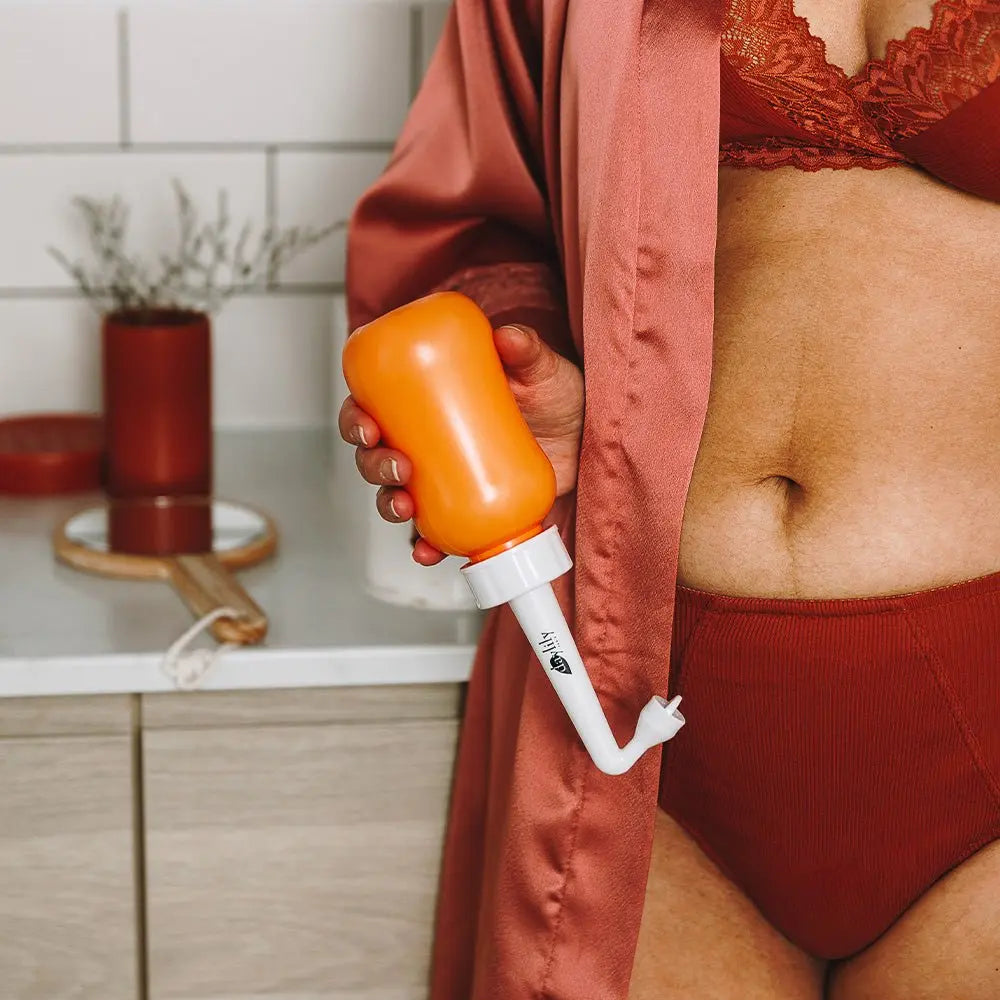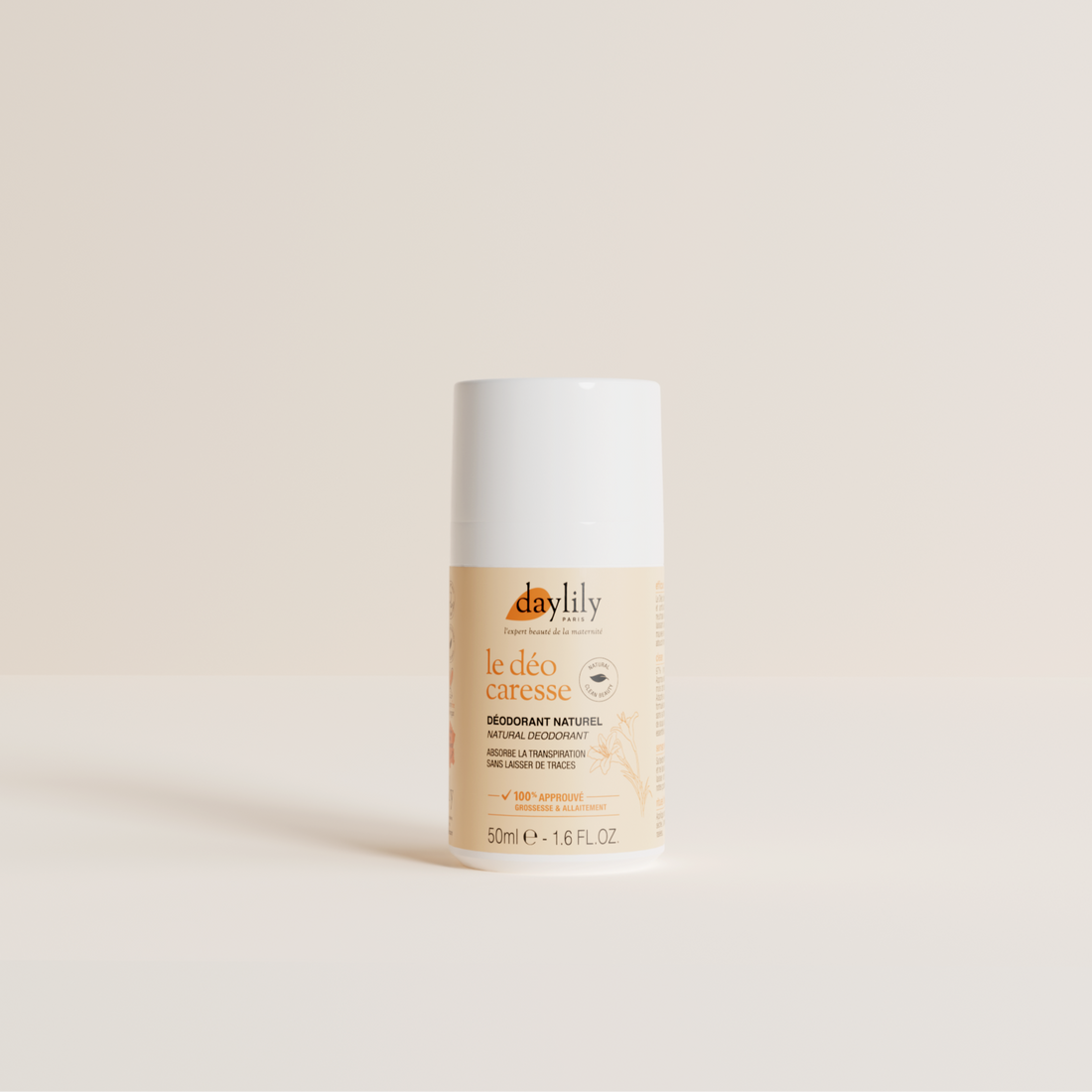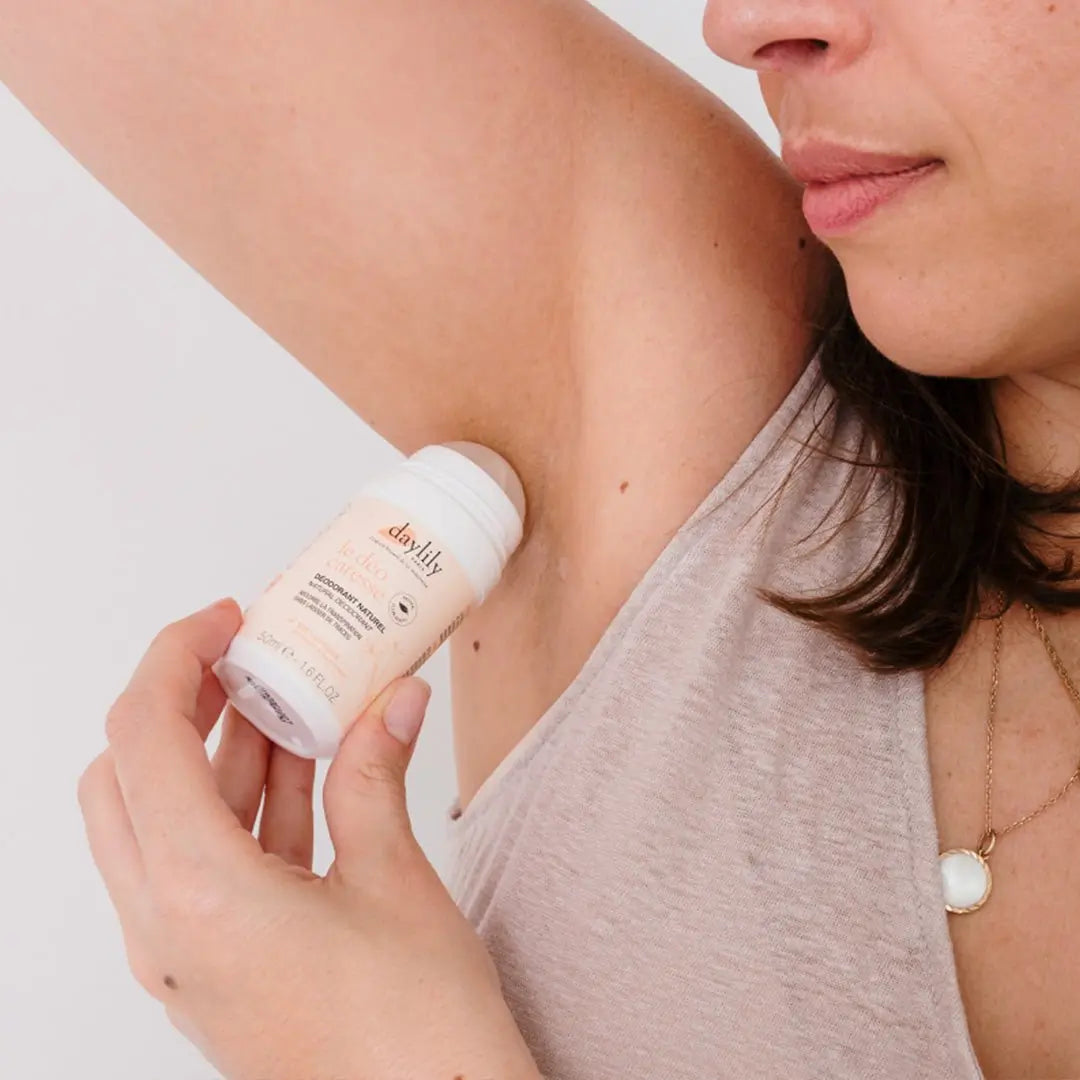Daylily Paris is a brand of clean, sensorial and effective skincare products, made in France and 100% compatible with pregnancy and breastfeeding. We're also committed to sharing quality information for an enlightened and relaxed maternity. 🧡
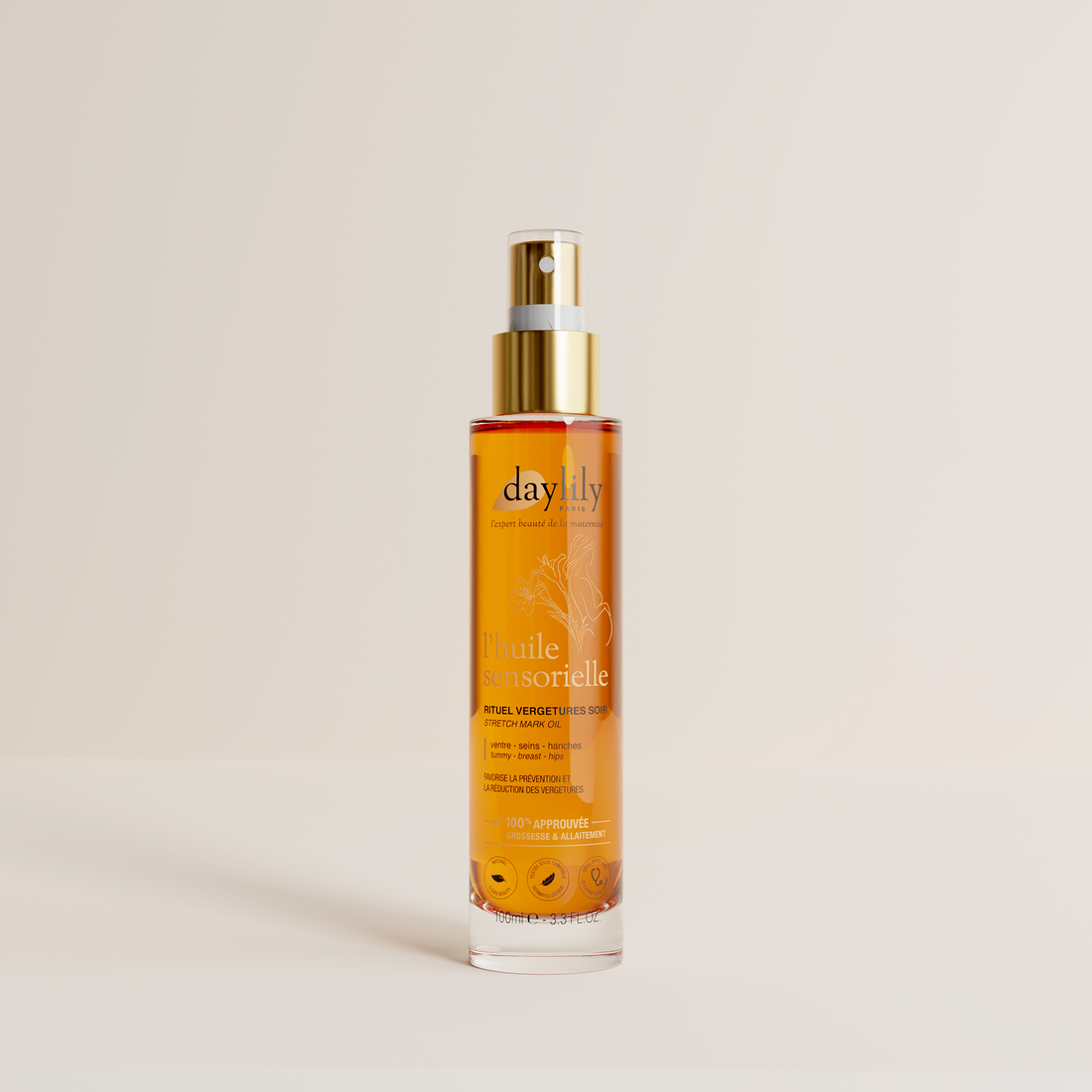

- Regular price
-
30,90 € - Regular price
-
- Sale price
-
30,90 €


- Regular price
-
29,90 € - Regular price
-
- Sale price
-
29,90 €

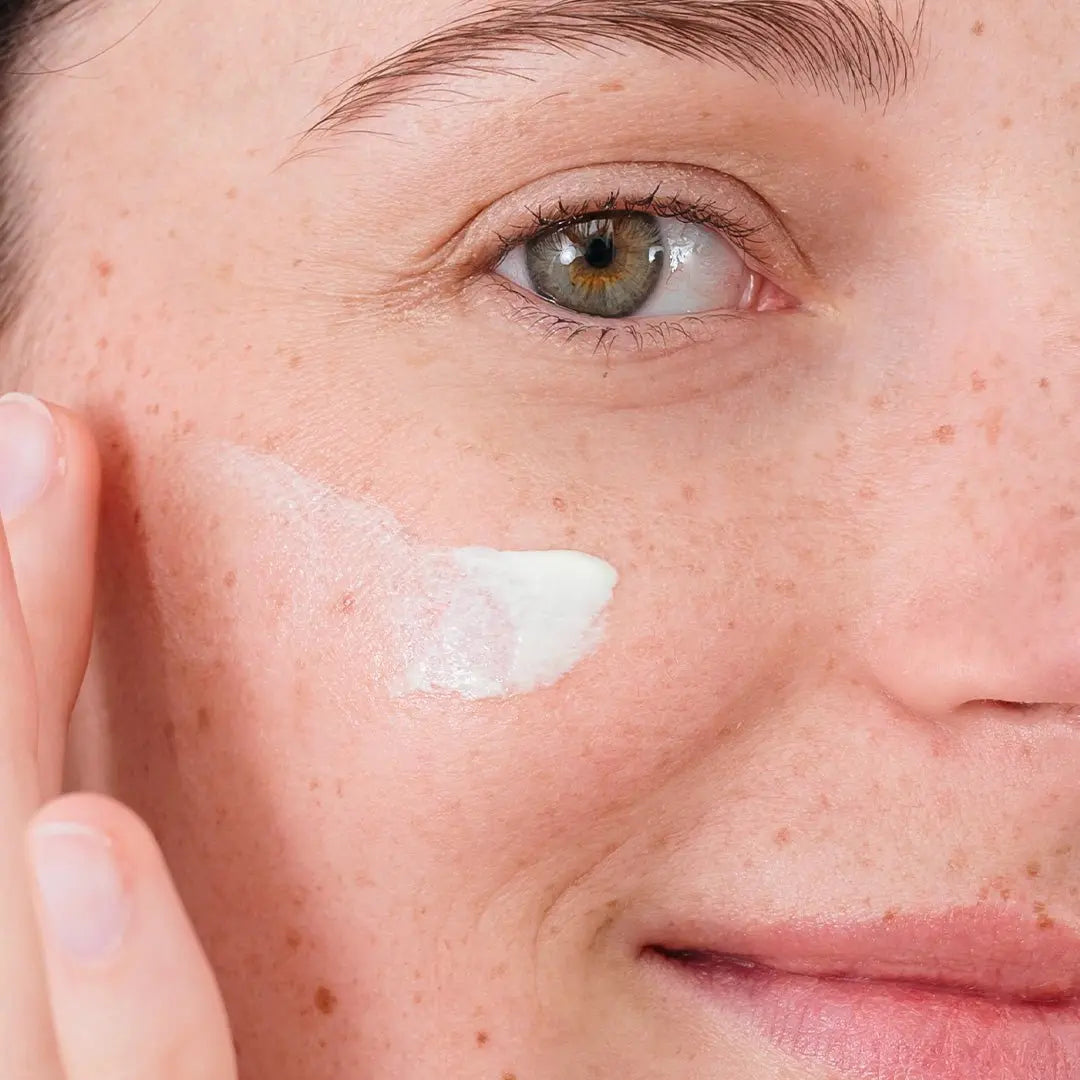
- Regular price
-
24,90 € - Regular price
-
- Sale price
-
24,90 €
The basics of the female cycle
To better understand when the fertile period occurs in each cycle, let's go back to the basics and our biology lessons. A menstrual cycle lasts, in theory, 28 days. Don't panic if this is not the case for you: each woman is different, and the length of the cycle can vary from one woman to another, and even from one month to the next! Your cycle will be considered normal even if it lasts 25 days or 32 days. Beyond 35 days, we will speak of a long cycle.

Let's take the example of a standard 28-day cycle. During these 28 days, we will distinguish 3 main phases:
• The follicular phase, that is to say the period during which the ovaries prepare to release the egg. It begins on the first day of menstruation - which generally lasts between 3 and 5 days. The follicular phase therefore extends from the 1st to the 14th day of the cycle.
• Ovulation, which occurs in the middle of the cycle, on the 14th day. The egg, once released, is present in the body for a very limited time, between 12 to 24 hours.
• The luteal phase, which extends from the day of ovulation until the first day of menstruation, in theory from the 14th to the 28th day of the cycle.
Seen from this angle, it does not seem possible to get pregnant during your period, since the fertile period is a priori quite far from the period of your period. Yes, but… All women are different and few of them have a perfect 28-day cycle each month, with ovulation on the 14th day. Some women have short cycles, others very irregular from one month to the next, and it is not always easy to identify your fertile window. Hence a risk of becoming pregnant, even in a period which a priori does not seem conducive to the conception of a baby.
Why can you get pregnant during your period?
A factor to take into account: the lifespan of sperm
You should know that a sperm has a much longer lifespan than an egg. If the latter disappears after a maximum of 24 hours, the sperm can remain in the female genital tract for up to 7 days. You can therefore get pregnant even if you do not have sexual intercourse on the same day of ovulation. This is why it is advisable, if you want to get pregnant, to have intercourse a few days before to put all the chances on your side.
The case of short or irregular cycles
Now let's take a very concrete example to explain why you can possibly get pregnant during your period. In the case of a short cycle of 21 days, ovulation will take place around the 7th day. If you had intercourse during your period, that is to say roughly between day 1 and day 4 of the cycle, sperm may still be present when the egg appears... and the possibility of a pregnancy looming then!
How likely is it to get pregnant during your period?
You may be thinking that the probability of this happening is extremely low... well not that much! Researchers looked into the question and analyzed more than 9,000 cycles. The results show that 5% of women ovulated on or before day 11, and 1.6% ovulated on or before day 9 (1). Sexual intercourse on day 4, at the end of your period, can therefore lead to fertilization a few days later.
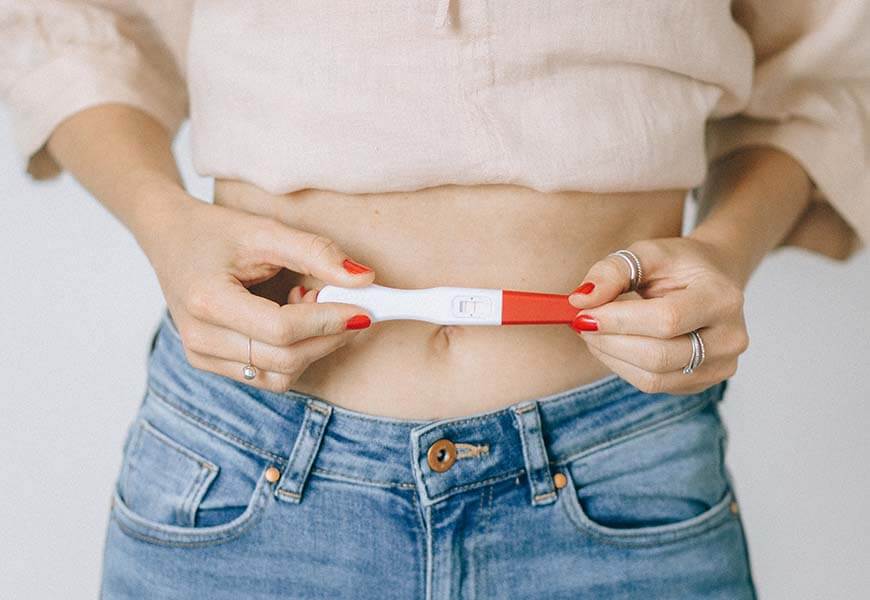
The case of bleeding confused with periods
Let's not forget to mention the bleeding that can occur during the cycle, and mislead you. You then think you are on your period – and therefore unlikely to get pregnant – but this bleeding has nothing to do with periods. They are called metrorrhagia, and their causes can be diverse: genital infection, forgotten pill, polyp or lesion of the uterus... If you notice them, the best is to speak quickly to your gynecologist to carry out a check-up.
If you have decided to stop taking the pill to get pregnant, and to put all the chances on your side for an embryo to settle quickly, you can maximize your chances of conception by identifying your most fertile days. And the key to this is knowing your body well. For example, you can note the length of your cycles on a calendar, opt for ovulation tests, or even practice symptomothermy – that is, self-observe the signs of fertility and non-fertility during the cycle (cervical mucus, temperature, cervix).
Some women will have more sensitive breasts or abdominal pain as they approach ovulation. These signs differ from one woman to another and are real personal data, specific to each woman.
And if, on the contrary, you don't have a baby plan at the moment, keep in mind that it is unlikely, but still possible to get pregnant in the event of unprotected sex even during your period, hence the need to opt for a suitable method of contraception and thus avoid any unwanted pregnancy.
(1) 3Fehring, RJ et al.: Variability in the phases of the menstrual cycle. J Obstet Gynecol Neonatal Nurs. Flight. 35: p. 376-84. 2006.



